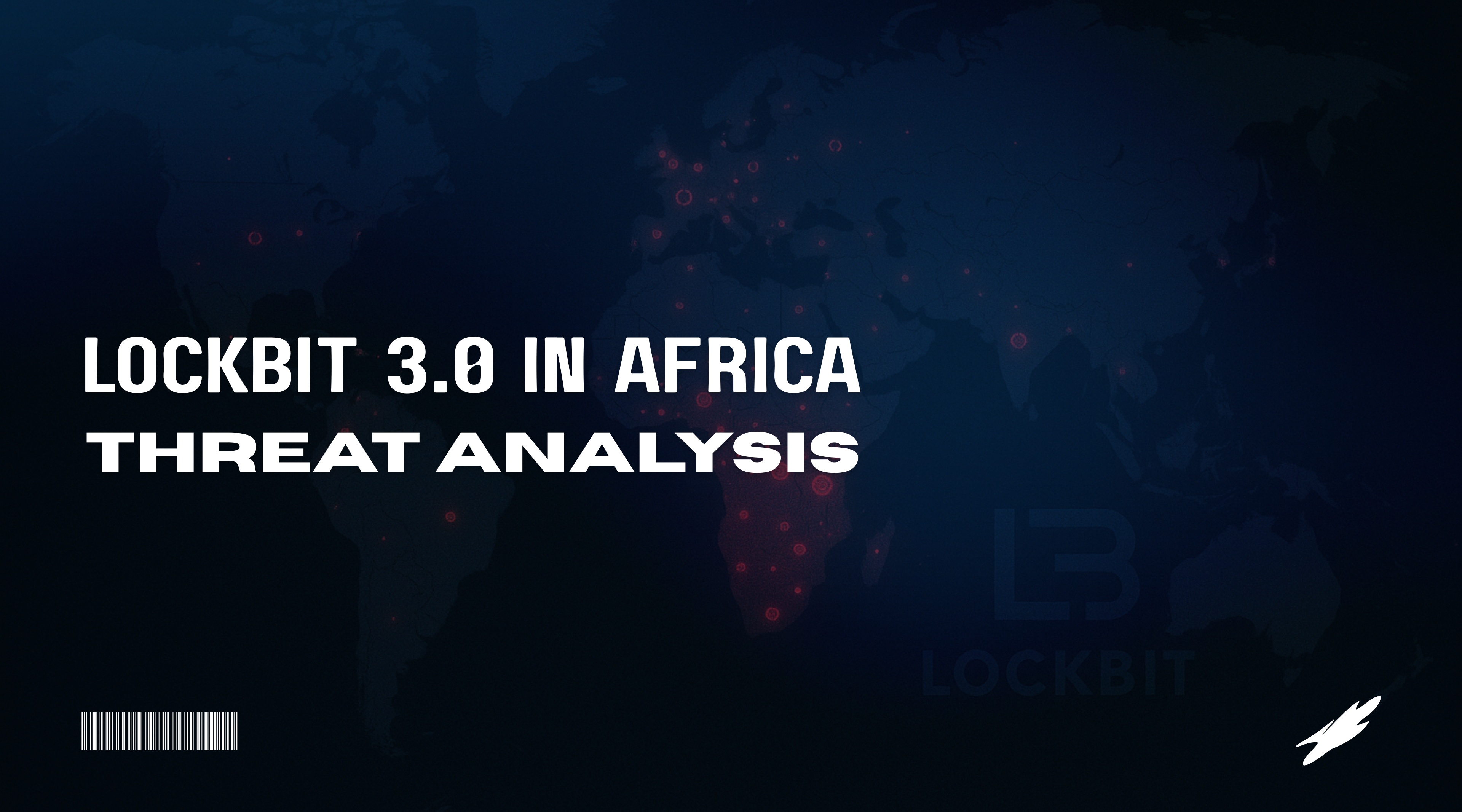LockBit 3.0 in Africa: An Analysis of the World's Most Notorious Ransomware
The Birdling's intelligence team analyzes the LockBit 3.0 ransomware group, its tactics, and its confirmed activity in Africa, assessing the direct threat to Nigerian businesses.
 14th Command Team
14th Command TeamNovember 15, 2025
Threat Actors

In the world of cybercrime, few names carry as much weight as LockBit. This highly organized and notoriously resilient ransomware syndicate has operated for years as a Ransomware-as-a-Service (RaaS) platform, responsible for billions of dollars in damages globally. In early 2024, a global law enforcement action known as "Operation Cronos" successfully disrupted LockBit's infrastructure. Many declared it a victory.
They were wrong.
Within days, the group resurfaced, demonstrating a shocking level of operational resilience. Our intelligence confirms that LockBit 3.0, the group's latest iteration, remains one of the most significant and persistent threats to organizations across Africa, including Nigeria. This is not a problem that has been solved; it is a threat that has evolved.
LockBit is not a single group of hackers; it is a sophisticated criminal enterprise that licenses its malware and infrastructure to dozens of affiliate attackers. This model allows them to strike multiple targets in parallel. Based on our analysis of their recent African campaigns, their modus operandi is ruthlessly efficient.
Initial Access - The Unlocked Door: LockBit affiliates are experts at finding the path of least resistance. Their primary entry methods include phishing emails with malicious attachments, exploiting unpatched vulnerabilities in public-facing software (like VPNs), and simply purchasing stolen login credentials from the dark web.
Privilege Escalation & Lateral Spread - Mapping the Kingdom: Once inside, they do not immediately encrypt. They move silently through the network, using tools to steal more powerful administrator credentials. In one observed West African incident, the attackers even used a custom variant of their malware designed to self-propagate across the network, infecting multiple machines automatically.
Data Exfiltration - The Heist: Before the final attack, they steal a copy of your most valuable data—financial records, customer databases, intellectual property. This data is uploaded to their own servers, setting the stage for the double-extortion tactic that has made them infamous.
Encryption & Evasion - The Final Blow: Only when your data is secured do they deploy the LockBit 3.0 encryption engine. It is notoriously fast and incorporates advanced anti-forensic techniques, such as disabling Windows Defender and deleting system logs to cover their tracks.
LockBit's activity across Africa is confirmed and growing.
In February 2024, the group successfully attacked South Africa's Government Employees Pension Fund (GEPF), exposing the sensitive data of millions of government workers.
Our intelligence has tracked multiple high-impact attacks in West Africa, including one on a large financial-industrial enterprise where the attackers used a leaked version of the LockBit 3.0 builder to create a custom payload.
While specific, publicly attributed LockBit attacks in Nigeria are often kept quiet by victims to avoid reputational damage, INTERPOL's 2025 threat assessment places Nigeria as the third-most targeted country in Africa for ransomware. Given LockBit's global dominance, it is a statistical certainty that their affiliates are actively targeting and compromising Nigerian organizations.
Protecting your organization from a top-tier threat like LockBit requires moving beyond a simple checklist of security tools. It demands a cohesive, multi-layered security strategy where technology, intelligence, and human expertise work in concert. This is the philosophy behind Our managed defense services. Hope is not a strategy.
Access Control & Patch Management (Foundational Hygiene): LockBit affiliates are experts at exploiting the basics. They target unpatched software and weak remote access credentials. Enforcing strong Multi-Factor Authentication (MFA) on all remote accounts (VPNs, RDP) and maintaining a rigorous patch management cycle are non-negotiable first steps. These actions harden the perimeter and close the most common entry points.
Endpoint Security & 24/7 Monitoring (The ARGOS Advantage): Traditional antivirus is not enough to stop LockBit; it only detects known threats. You need to detect malicious behavior. This is where our ARGOS™ Platform comes in. When you deploy our Managed Detection and Response (MDR) service, we provide 24/7 monitoring of every endpoint in your organization. The ARGOS engine won't just look for viruses; it'll hunt for the subtle signs of an active intrusion, like the credential harvesting and lateral movement techniques LockBit uses, allowing our SOC analysts to neutralize the threat before the final encryption stage begins.
Threat Intelligence & Proactive Hunting: You cannot defend against an enemy you do not understand. The ARGOS platform is continuously enriched with our proprietary intelligence on the specific Indicators of Compromise (IOCs) and Tactics, Techniques, and Procedures (TTPs) used by LockBit affiliates operating in Africa. This allows our elite threat hunters to proactively search your environment for threats, rather than just waiting for an alarm. This intelligence-led approach is what separates us, a true security partner from a simple software seller or reseller.
LockBit 3.0 is not a distant problem. It is a clear and present danger to Nigerian businesses. Their resilience, sophistication, and focus on financial extortion make them a formidable adversary. Organizations must assume they are potential targets and harden their defenses accordingly. A reactive security posture is an invitation for a catastrophic breach.
A detailed case-study and a more in-dept analysis is available on research.thebirdling.com